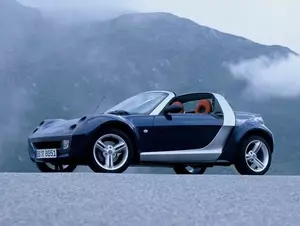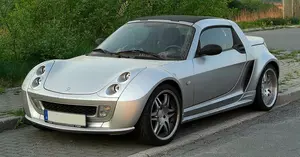
| Vehicle | Precise engine size | Difference from world average | Engine size to consumption ratio | Horsepower from 1 L | Engine size to 100 kg of weight |
|---|---|---|---|---|---|
| 0.7 i |
0.7 L (698 cc) |
70.2% smaller | 15 cc to 1 mpg | 117 hp from 1 L | 87 cc to 100 kg |
| 0.7i |
0.7 L (698 cc) |
70.2% smaller | - | 144 hp from 1 L | - |
| Vehicle | 0.7 i |
|---|---|
| Precise engine size | 0.7 L (698 cc) |
| Difference from world average | 70.2 smaller |
| Engine size to consumption ratio | 15 cc to 1 mpg |
| Horsepower from 1 L | 117 hp from 1 L |
| Engine size to 100 kg of weight | 87 cc to 100 kg |
| Vehicle | 0.7i |
| Precise engine size | 0.7 L (698 cc) |
| Difference from world average | 70.2 smaller |
| Engine size to consumption ratio | - |
| Horsepower from 1 L | 144 hp from 1 L |
| Engine size to 100 kg of weight | - |

| Vehicle | Precise engine size | Difference from world average | Engine size to consumption ratio | Horsepower from 1 L | Engine size to 100 kg of weight |
|---|---|---|---|---|---|
| 0.7 i |
0.7 L (698 cc) |
70.2% smaller | 15 cc to 1 mpg | 117 hp from 1 L | 87 cc to 100 kg |
| 0.7i Brabus |
0.7 L (698 cc) |
70.2% smaller | 15 cc to 1 mpg | 144 hp from 1 L | 87 cc to 100 kg |
| 1.4 i V6 |
1.4 L (1396 cc) |
40.5% smaller | - | 121 hp from 1 L | 175 cc to 100 kg |
| Vehicle | 0.7 i |
|---|---|
| Precise engine size | 0.7 L (698 cc) |
| Difference from world average | 70.2 smaller |
| Engine size to consumption ratio | 15 cc to 1 mpg |
| Horsepower from 1 L | 117 hp from 1 L |
| Engine size to 100 kg of weight | 87 cc to 100 kg |
| Vehicle | 0.7i Brabus |
| Precise engine size | 0.7 L (698 cc) |
| Difference from world average | 70.2 smaller |
| Engine size to consumption ratio | 15 cc to 1 mpg |
| Horsepower from 1 L | 144 hp from 1 L |
| Engine size to 100 kg of weight | 87 cc to 100 kg |
| Vehicle | 1.4 i V6 |
| Precise engine size | 1.4 L (1396 cc) |
| Difference from world average | 40.5 smaller |
| Engine size to consumption ratio | - |
| Horsepower from 1 L | 121 hp from 1 L |
| Engine size to 100 kg of weight | 175 cc to 100 kg |